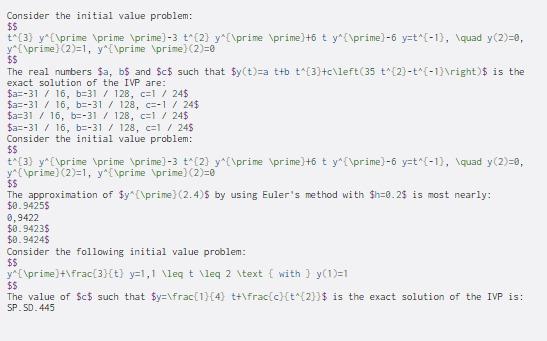Answered step by step
Verified Expert Solution
Question
1 Approved Answer
Consider the initial value problem: $$ [3) y*[prime prime prime) -3 t (2) y*[prime prime]+5 t y^{prime)-6 yt*(-1), quad y(2)=0, [prime) (2)=1y{prime prime) (2)=0 $$

Step by Step Solution
There are 3 Steps involved in it
Step: 1

Get Instant Access to Expert-Tailored Solutions
See step-by-step solutions with expert insights and AI powered tools for academic success
Step: 2

Step: 3

Ace Your Homework with AI
Get the answers you need in no time with our AI-driven, step-by-step assistance
Get Started


